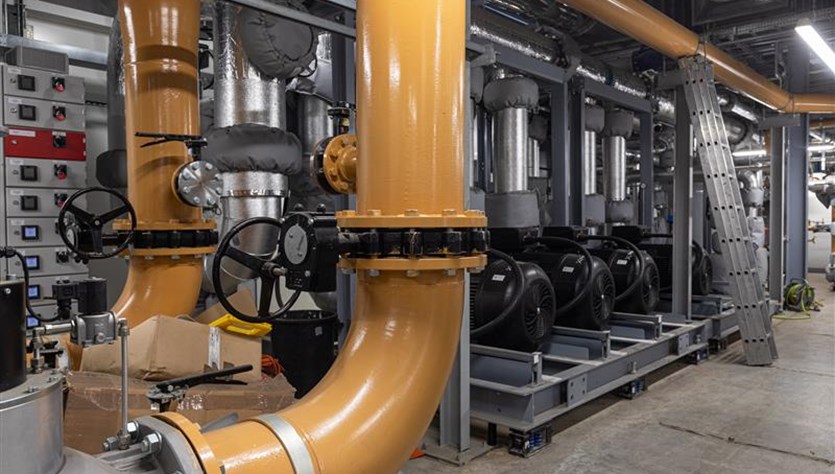In 2022, Leeds Beckett University connected its City Campus to the Leeds PIPES District Heat Network, which takes heat from the local energy-from-waste plant and distributes it through a 30 km network to over 4,100 homes and 29 non-residential buildings.
The connection was grant-funded through the Public Sector Decarbonisation Scheme, with the main driver being to reduce scope 2 carbon emissions and contribute to the University’s overall goal of achieving net zero by 2035.
Three years on, with careful monitoring in place, there is now a clear picture of how the new connection has performed, and, more importantly, the practical benefits it has delivered.
Initial forecasts predicted that the University would save around 370 tonnes of carbon per year. In practice, the monitored data shows that the actual savings have reached 530 tonnes annually, well above the original projection.
The financial impact has also been significant. Gas accounts for 41% of the University’s energy costs and, by transforming its heating infrastructure, the University has cut these costs by 42%. That equates to almost £250,000 in annual savings.
Not all these savings came directly from the PIPES heat network connection though. Alongside the heat network interface works, the University installed a new Building Energy Management System, which makes intelligent decisions about how buildings use heat while continuously monitoring performance. This improvement alone reduced heat consumption and accounted for 23% of the total savings.
Ben Mohatta, Associate Design Director for Vital Energi, led the team that designed the Leeds PIPES project and its interface connections and explained, “The Leeds PIPES heat network can connect to a wide range of buildings, however optimising the efficient usage of energy within the buildings is a fundamental element to creating successful heat networks.
“This is a great example of how an extended commitment from the end user can result in an amplification of the energy savings and carbon reduction benefits of connecting to a heat network.”
It is important to note that Leeds Beckett is just one of thousands of success stories. The Leeds PIPES network has now expanded across the city, connecting over 4,100 homes, civic buildings, and dozens of other buildings to bring similar benefits across the community.

The work done by the University’s Estates Team is important as upcoming regulation, heat network zoning and various funding streams are set to see massive growth in the delivery of heat network over the coming years. With the potential scenarios of 20% of the UK’s heat demand being met by heat networks, it’s essential that potential customers can see the financial and environmental benefits which come through connection.